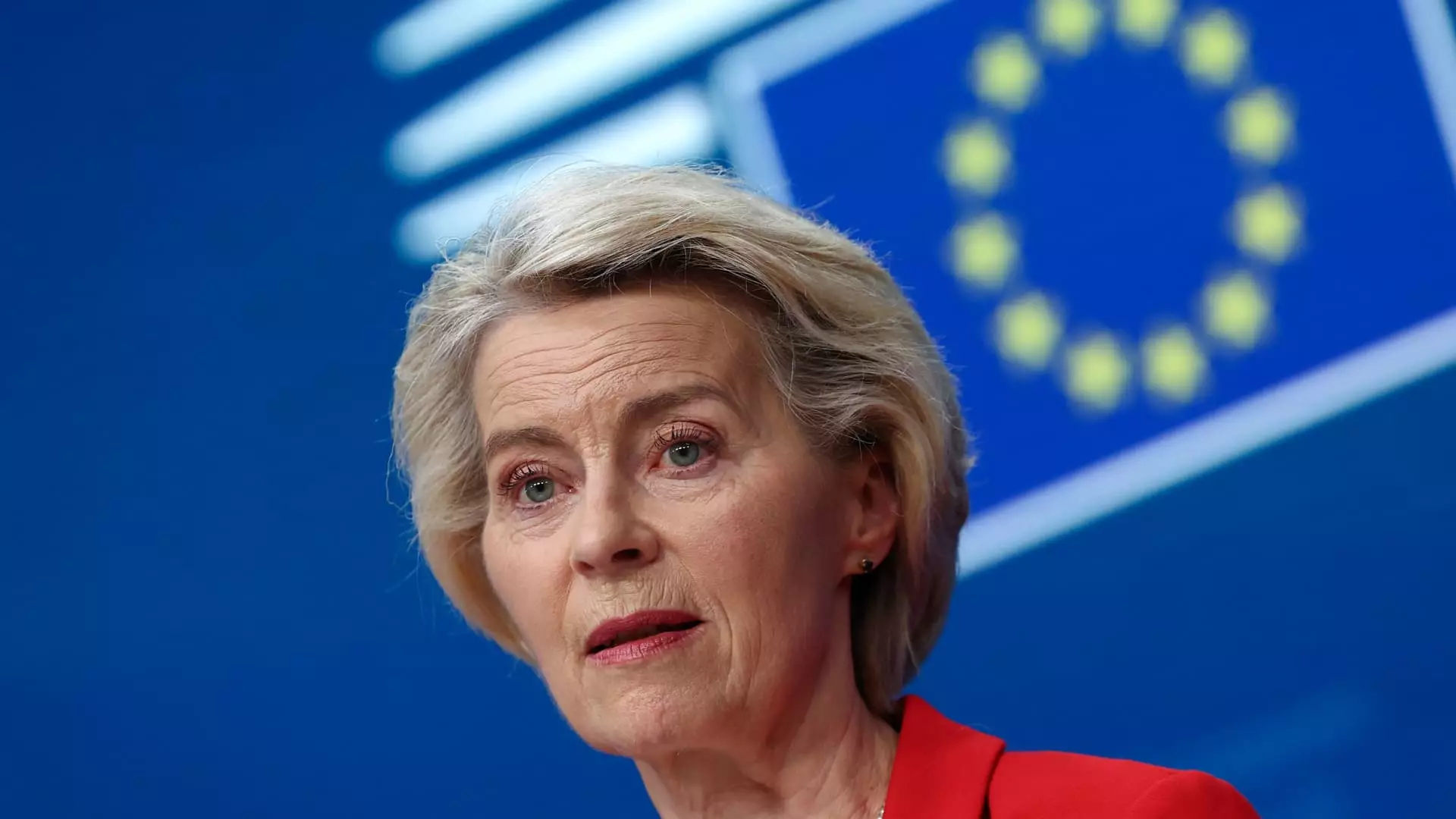The European Union’s decision to suspend retaliatory tariffs against the United States is a calculated gamble rooted in a desire to preserve multilateral stability rather than simply succumb to American pressure. Such a move isn’t born out of naive optimism; rather, it reflects an understanding that diplomacy, although often fragile, remains the most viable route toward mutual advantage. Yet, this act of restraint raises questions about Europe’s resilience in standing firm against aggressive trade tactics that threaten long-term stability. The EU’s willingness to delay countermeasures suggests a recognition that negotiations should be prioritized over reactive tit-for-tat tariffs. But the underlying reality remains: the U.S. under Trump’s leadership has repeatedly demonstrated a penchant for weaponizing trade as a tool of coercion rather than cooperation. Is Europe overly trusting in its diplomatic patience, or is it really the only sensible approach? From a critical perspective, the truth lies somewhere in between—Europe’s strategic patience is admirable, but it also risks managerial complacency in the face of American unilateralism.
The Power Play of Tariffs and the Question of Sovereignty
Tariffs are more than mere economic measures—they are geopolitical weapons wielded to challenge the sovereignty of trading partners. Trump’s assertion that America’s trade deficit constitutes a national security threat exemplifies a dangerous conflation of economic and military paradigms. If economic imbalance justifies tariffs, then the U.S. essentially redefines global trade as a zero-sum game where unilateral advantage trumps cooperation. From a center-left liberal perspective, this approach smacks of short-sighted nationalism that undermines the very foundations of a rules-based global order. Europe’s response—delaying tariffs but preparing countermeasures—entails a delicate balancing act. While it signals resilience, it also exposes vulnerability to American demands for concessions. This dynamic ultimately benefits no one, especially when European exports such as pharmaceuticals, cars, and aircraft are scrutinized under such political gambits. The core issue, often overlooked, is that the erosion of mutual trust impairs global economic interconnectedness—a dangerous trajectory for innovation, shared prosperity, and long-term growth.
The Illusory Promise of a “Better Deal”
Within the Trump administration, the narrative of renegotiating trade agreements to “win back” economic dominance is, at its core, a misguided illusion. President Trump’s stated goal—that tariffs and tough negotiations will revitalize the U.S. economy—ignores the broader consequences of such isolationist tactics. The claims of unfair trade practices and national security justifications are convenient cover for protectionism disguised as patriotism. From a nuanced, liberal perspective, this strategy fosters division rather than collaboration, threatening global stability and diminishing the EU’s confidence as a partner in dialogue. The Europeans’ cautious approach, emphasizing negotiations with “their heads held high,” suggests a recognition that enduring global partnerships cannot be built on unilateral arrogance. Real strength lies in constructive engagement, not in the reckless deployment of tariffs that threaten to collapse complex supply chains and damage multinational industries. The false promise of America’s “better” trade deals under Trump’s hardened stance risks undermining the very prosperity that global integration has fostered over decades.
The Broader Implications for Global Governance and Economic Justice
What is at stake beyond tariffs? The confrontation reflects deeper issues surrounding global economic governance—namely, the United States’ preference for unilateralism over multilateral agreements. The EU’s cautious stance highlights a commitment to multilateralism, yet it also reveals cracks in the system when major powers abandon diplomatic norms for national gain. For Europe, maintaining resilience means upholding the principles of fairness, cooperation, and shared responsibility. From a center-left worldview, this is necessary not only for economic stability but also for social justice, environmental sustainability, and the preservation of democratic institutions. The potential fallout from prolonged trade tensions could cascade into broader crises—job losses, economic stagnation, and political instability—disproportionately impacting the most vulnerable. Europe’s balanced approach appears to be an effort to preserve not just economic ties but also the integrity of a rules-based international order that the U.S. seems increasingly willing to undermine. In the face of American assertiveness, Europe’s measured response might be the first step toward resisting a dangerous descent into protectionism that endangers global progress.

